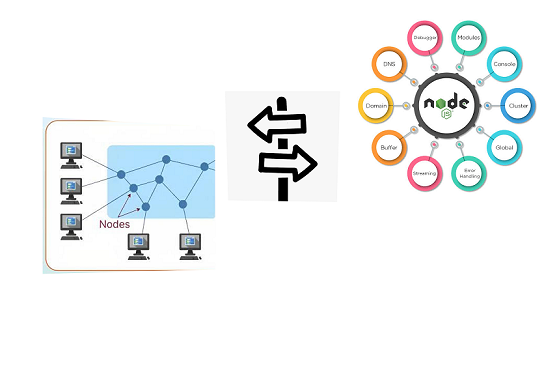When people first hear about Node.js, some confusion arises from its name. Is there a difference between Node.js and Node? Are they two separate things, or are they synonymous?
What Is Node.js?
Node.js is an open-source, cross-platform runtime environment designed to execute JavaScript code outside of a browser. It was created in 2009 by Ryan Dahl and is built on Google’s V8 JavaScript engine (the same engine that powers Google Chrome). Node.js allows developers to use JavaScript on the server side, enabling the creation of scalable, fast, and lightweight web applications.
Key features of Node.js include:
Non-blocking I/O: Node.js uses an event-driven architecture and asynchronous programming to handle multiple tasks simultaneously without blocking execution.
Single-threaded model: Although it operates on a single thread, Node.js efficiently handles concurrency via its event loop.
Package ecosystem: With npm (Node Package Manager), developers gain access to thousands of libraries and tools to enhance their applications.
What Is Node?
The term “Node” is simply shorthand for Node.js. In most discussions, “Node” and “Node.js” are used interchangeably to refer to the same thing. However, it’s important to note that “Node” by itself doesn’t have a separate identity or function apart from Node.js.
Some developers casually say “Node” instead of “Node.js” for convenience, especially in informal settings. But for technical clarity, “Node.js” is the correct and official term.
Differences Between Node.js and Node
Despite the widespread usage of both terms, there are no technical differences between Node.js and Node. If you come across the term “Node” in documentation, tutorials, or discussions, it almost always refers to Node.js.
However, confusion can arise because:
1. Context matters: In rare cases, someone might refer to “Node” in a non-technical context, like a graph node or network node. This has nothing to do with Node.js.
2. Slang or abbreviation: Developers often abbreviate “Node.js” to “Node” for brevity, but they mean the same runtime environment.
Why the Confusion Exists
The ambiguity stems from the casual use of the term “Node” in developer conversations. While “Node.js” is the full, official name of the platform, its frequent usage has led to the adoption of “Node” as a shorthand term.
To avoid confusion:
Use “Node.js” in professional or formal writing.
In casual conversation, it’s acceptable to say “Node” as long as the context is clear.
Conclusion
There is no functional difference between Node.js and Node—both refer to the same JavaScript runtime environment. While “Node.js” is the official term, “Node” is commonly used as shorthand. Understanding this distinction can help eliminate confusion when reading about or discussing the platform.
Whether you call it Node or Node.js, its power lies in enabling developers to build fast, scalable, and efficient server-side applications using JavaScript.


